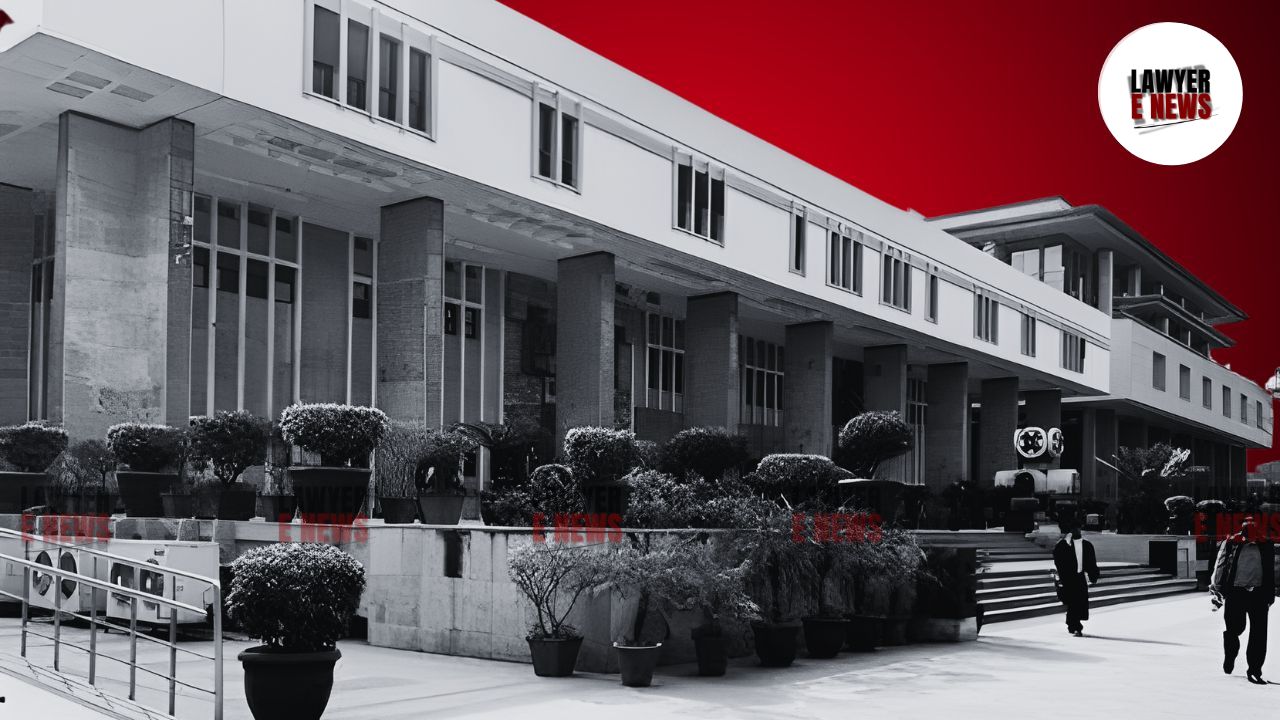-
by Admin
15 February 2026 2:16 AM



Legal heirs cannot be held liable for duty drawback recovery under Section 75 of the Customs Act after the death of the sole proprietor. In a significant ruling, the Delhi High Court quashed recovery proceedings initiated against the legal heirs of a deceased exporter, citing that the notice was issued after his death, rendering it legally invalid. The court emphasized that the issuance of a show-cause notice to a deceased individual constitutes a fundamental jurisdictional error. This decision is expected to set a precedent for cases involving recovery of government dues from sole proprietorships after the proprietor’s death.
The petitioner, Sangeeta Goyal, filed a writ petition challenging the recovery proceedings initiated by the Commissioner of Customs (Exports) against her late husband, Arun Kumar Goyal, the sole proprietor of M/s. L.V. Tools & Components. Between 2009 and 2014, Arun Kumar Goyal had availed benefits under the Duty Drawback Scheme under Section 75 of the Customs Act, 1962. Following his death on August 17, 2018, the Commissioner of Customs issued a show-cause notice on September 28, 2018, demanding the recovery of ₹22,62,352 on grounds of non-realization of export proceeds. Despite Arun Kumar Goyal’s passing, the notice was addressed to him, and the proceedings continued without formally bringing his legal heirs on record.
The court, led by Justice Ravinder Dudeja, observed that the issuance of a notice to a deceased person is not merely a procedural lapse but a jurisdictional error. The court underscored that a valid notice under the law must be directed at the correct party, which was not the case here. "The requirement of issuing notice in the name of a right person and not a dead person is not merely a procedural requirement but a condition precedent to the notice being valid in law," the court noted. The notice issued in Arun Kumar Goyal's name after his death was declared invalid.
The court relied on previous rulings, including the Supreme Court’s judgment in Shabina Abraham vs. Collector of Central Excise and Customs (2015), where it was held that no recovery can be effected from the legal heirs of a deceased sole proprietor if no specific statutory provision permits such recovery. Additionally, the court cited its own decision in Amandeep Singh Sehgal vs. Commissioner of Customs (Preventive) Delhi (2018), where it quashed similar recovery proceedings initiated against the heirs of a deceased person.
The court’s decision was grounded in the principles laid down in the Customs Act, 1962, and relevant judicial precedents. Under Rule 16-A of the Customs, Central Excise Duties, and Service Tax Drawback Rules, 1995, it is mandatory for the customs authorities to issue a valid show-cause notice before initiating recovery proceedings for wrongly availed duty drawbacks. Since the notice was issued after the sole proprietor’s death, the court held that the recovery proceedings could not be sustained. "The issuance of notice is a sine qua non before affecting the recovery of erroneously availed drawback," the bench noted.
Justice Dudeja remarked, "The notice, having been issued against a dead person, suffers from a fundamental jurisdictional error. No steps were taken to bring the legal heirs on record, and therefore, the entire recovery proceedings stand vitiated."
The Delhi High Court’s decision in this case reaffirms the legal position that recovery proceedings against a sole proprietor cannot continue posthumously without the legal heirs being properly brought on record. This ruling sends a clear message about the importance of adherence to procedural requirements in government recovery proceedings, particularly in the case of deceased individuals. The judgment is expected to influence future cases where the Customs Department seeks recovery of government dues from legal heirs of deceased individuals.
Date of Decision: September 6, 2024
Sangeeta Goyal vs. Commissioner of Customs (Exports)
